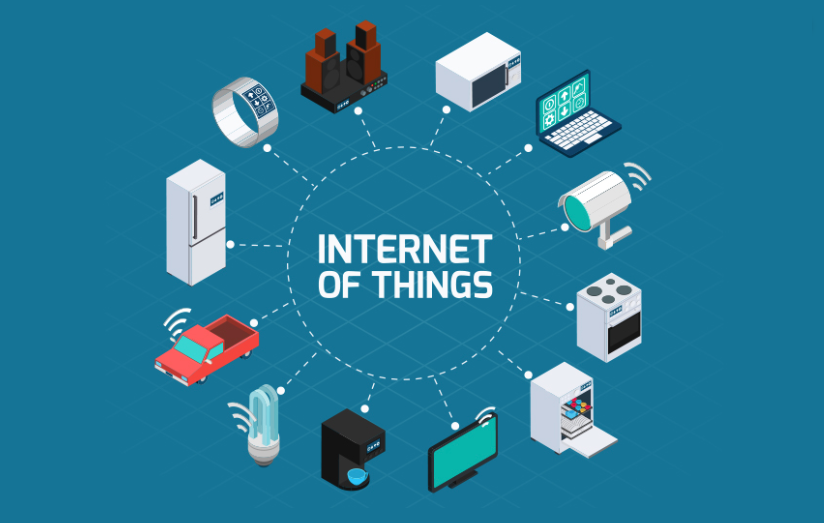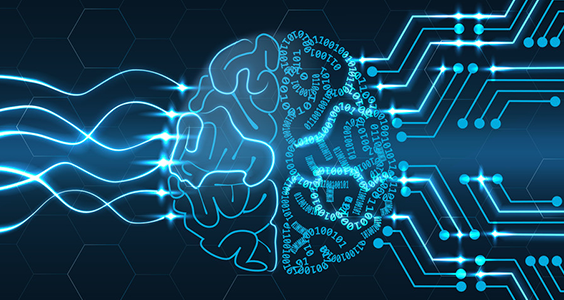5 Ways AI can change Infrastructure Management Services
08/31/2019

Artificial Intelligence in recent times has become an inextricable part of IT thanks to its unparalleled efficiency and highly productive results. Artificial intelligence is basically machines that can work and react like humans. These machines are programmed in such a manner that they can solve ingenious problems and are able to deliver results in real-time without any support from humans.
IT infrastructure refers to the various components like the network, the hardware (servers/clients, accessories), the software, etc. Businesses today generate truckloads of data – from sensors, apps, and other internal data sources, and external data sources like weather forecasts etc. – that needs to be properly collected and analyzed.
In the context of AI and infrastructure management, we refer to a system that can learn by itself, the relationships between the various components of IT, recognize data patterns and the context, and react and function accordingly. This is different from software-defined infrastructure where the system acts according to the software that is loaded onto it.
So How Does AI-defined Infrastructure Aid Infrastructure Management?
IT supports can gain immensely by embracing AI-based infrastructure. AI’s ability to function without human intervention makes it the ideal technology for enhancing the efficiency of infrastructure management services.
AI-defined infrastructure can help infrastructure management services in various aspects. Here we discuss some of the key areas where AI can be useful for IT support –
- Detection of Cyber-security Threats
We have seen how sensitive data of millions of people in several countries were compromised due to ransomware like WannaCry, but the worrying factor is that WannaCry is just the tip of the iceberg as there are several other malicious threats present.
There has been a spurt in cyber-attacks worldwide in the recent times and so far, the security measures have either failed or have proved inefficient in restricting the growth of these attacks.
However, AI gives us hope that potential threats may be identified before they can do much damage, with its ability to study patterns of systems, networks and, devices. Unlike humans, AI systems can spot unusual patterns quickly and take appropriate actions. AI-based systems will also have stronger immunity against such threats. With the development of AI-based systems we can stay assured that online data can be safeguarded with more ease.
- Prediction and Prevention of Failure
One of the key reasons behind system crash is a failure of humans to identify the problems in the early stage. There are numerous reasons behind this human negligence, but even after several training modules humans haven’t reached the level where they can identify all minute issues that may become a big deal in the upcoming times.
On the contrary, AI algorithms may be able to recognize and associate data that predicts failures in network connections, storage, power, etc., much before humans are able to do so. This can significantly help in preventive maintenance to avoid a system crash and allow organizations to deliver faster and more productive results.
- Analyzing Core Reasons
AI can also be used to find out the root cause of multiple failures occurring, an area where humans lack. Due to limitations in analyzing information, humans are at times unable to reach to the core reasons behind several problems. However, there are no such limitations with AI. AI can analyze any amount of information with ease and can process it in highly quick time.
This understanding of the core reasons is highly vital as this information becomes knowledge for the future. And this knowledge is instrumental to carry out preventive maintenance which ensures there are no such multiple failures in the future.
- Automated Mitigation
Once the system is equipped with knowledge of deviations and possible failures/security threats, there can be ‘reflex’ reactions when such threats are imminent – much like how we close our eyes when an object comes too close.
This instant reaction is highly important as this can help organizations in defeating possible threats or any potential problems. By developing instant reactions several issues can be resolved instantly saving organizations resources and money.
Currently, organizations need to create massive systems and burn a big hole in their pockets to ensure they have quick mitigation against potential threats. The advent of artificial intelligence performs this service without much investment and without the need of creating any additional systems.
- Reduce Dependency on Humans & Saving Costs
Experts are still debating on the possibility of whether AI can completely replace humans in some fields. However, everyone agrees on one thing that artificial intelligence will surely reduce the dependency on humans and in fact in some areas this is already happening.
In the field of infrastructure management, AI solves several issues without seeking support from humans. As this trend develops more, companies will be able to save a massive chunk of the budget as there won’t be any need to hire, train and maintain humans for carrying out several tasks.
The future of infrastructure management companies depends very much on how well they can implement AI in IM. For the system/machine to start learning too, it takes a human to first program it that way.
Original article published on Flatword Solutions under: https://www.flatworldsolutions.com/IT-services/articles/5-ways-ai-can-change-infrastructure-management-services.php#












